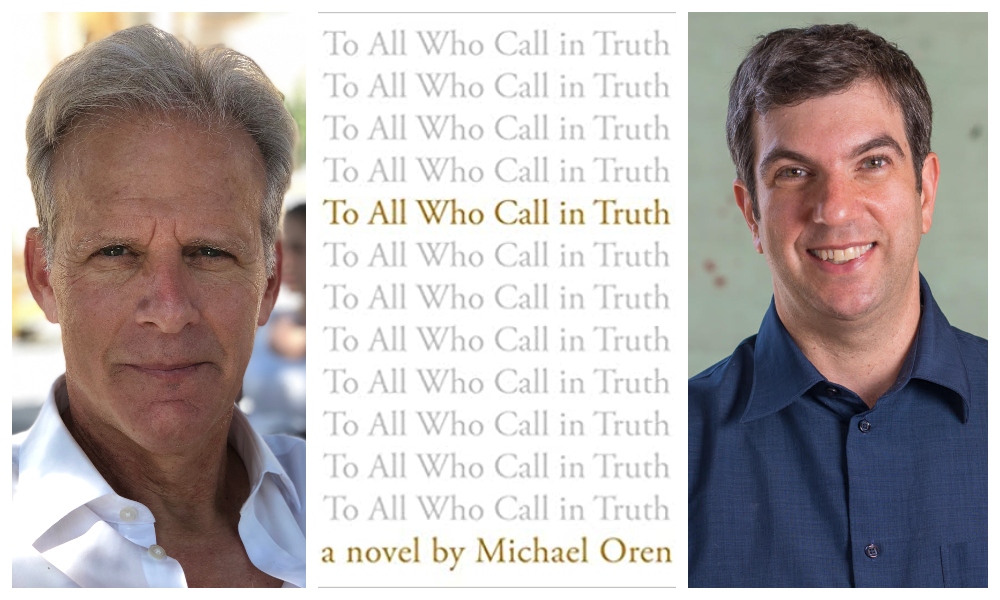By Lily Hoffman Simon
 Imagine the following: on one side of the room, there is a group advocating for Palestinian liberation. Facing them is a group advocating for the unilateral support and strength of Israel. Everyone is either yelling at each other or casting menacing glares across the room, and most people who walk by avert their eyes. A recent example at McGill Univeristy occurred when the presence of former Israeli soldiers on campus led to protests from Palestinian Rights Groups and a spirited defence by Jewish groups. If you have been on a university campus recently, this image is probably not that surprising. Preoccupied with screaming, the people standing on opposing sides tend to be unable to hear what the other party is saying. By screaming so loudly about their own views, each side is silencing the voice of the other. This silencing only serves to worsen to conflict.
Imagine the following: on one side of the room, there is a group advocating for Palestinian liberation. Facing them is a group advocating for the unilateral support and strength of Israel. Everyone is either yelling at each other or casting menacing glares across the room, and most people who walk by avert their eyes. A recent example at McGill Univeristy occurred when the presence of former Israeli soldiers on campus led to protests from Palestinian Rights Groups and a spirited defence by Jewish groups. If you have been on a university campus recently, this image is probably not that surprising. Preoccupied with screaming, the people standing on opposing sides tend to be unable to hear what the other party is saying. By screaming so loudly about their own views, each side is silencing the voice of the other. This silencing only serves to worsen to conflict.
It is important to understand that the conflict in the Middle East cannot simply be divided into two opposing sides. There is an immense amount of nuance in the differing perspectives that reveal the situation to be much more complicated than “us” versus “them.” On campuses, as elsewhere, however, the complexity is often ignored, and the conversation is forced into two opposing poles.
The inability of involved parties to hear the voices of those who differ from them is one of the fundamental causes in the continuation of the conflict. The success of Palestinian nationalism will only come when the rest of the world, including the Israeli government, hears the voice of the Palestinians. By continually re-asserting physical dominance over the Palestinian people, the Israeli government is refusing to hear, or really acknowledge, the people’s plight, preventing any change. The same can be said in defence of the opposing side. The stability and security of Israel will only come when the rest of the world is able to hear, and listen, to the plight of the Jewish people throughout history, and thus understand the motivation of the Zionist movement.
This inability to hear and understand others is exactly what is happening on campuses around North America. By forcing the discussion around two opposing sides, which inevitably conflict, the voice of everyone in between that dichotomy is silenced.
What the Israel/Palestine discussion needs most on campuses, and elsewhere, is for people who care about the issue (and those who don’t) to be able to listen. This kind of open discussion is usually criticized, because it doesn’t necessarily go anywhere in itself. This notion is false, however; truly listening to others enables us to understand and build connections, humanizing those who are usually seen as the enemy. Groups that engage in this kind of dialogue are slowly springing up on campuses. For example, at McGill University, one group, Omeq, is trying to ignite this kind of grassroots dialogue for anyone interested.
Conversations on campus probably won’t shape the situation in the Middle East that concretely. However, through discussion, if people’s or ‘our’ ears are truly open, we will see the strong parallels between different narratives, and connect with the situation of others. Listening not only enables us to develop much-needed empathy, but also affects all our actions outside of the dialogue, including voting practices, and other activist work. For example, The Forward details how a forum in between eight women emotionally invested in the Middle East affected their work outside of their conversation in profound ways. This type of discussion is especially important on campuses, where youth, who later in life will become the leaders on this issue, develop the strongest sense of global and interpersonal understanding. Only when this dialogue starts will the Palestine/Israel discussion, argument, war, or whatever you choose to call it, finally change.







Lily, I’ve been reading your blog for a while now, and I have to say: you are fabulous!